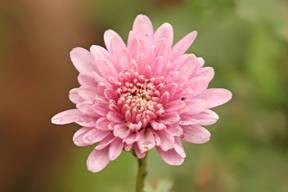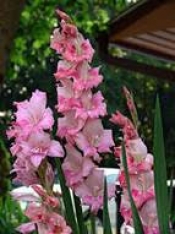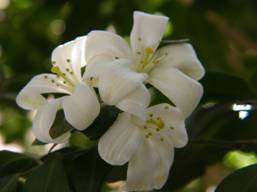
February 13, 2015 (San Diego) — With Valentine’s Day approaching, U.S. Customs and Border Protection officials want to remind travelers of prohibited flowers from Mexico, so there are no surprises at the border.
 Chrysanthemums, gladiolas, and orange jasmine (Murraya) from Mexico, are prohibited through the passenger ports of entry. Travelers cannot bring floral arrangements with those flowers into the country.
Chrysanthemums, gladiolas, and orange jasmine (Murraya) from Mexico, are prohibited through the passenger ports of entry. Travelers cannot bring floral arrangements with those flowers into the country.
Roses, carnations, and most other cut flowers are allowed into the U.S. after they pass inspection. However, plants potted in soil cannot be brought from Mexico. Travelers must declare all flowers and plants to CBP officers.
“We work to protect U.S. agricultural resources from harmful pests, so we thoroughly inspect agricultural products brought across the border,” said Pete Flores, CBP San Diego’s Director of Field Operations. “We want travelers to know ahead of time what they can and cannot bring into the country so there are no surprises at the port of entry.”
 Throughout the year, and especially around Valentine’s Day, CBP agriculture specialists are busy making sure that flower imports are free from insects and diseases that could harm the agricultural and floral industries of the United States. They are specially trained to inspect plant and animal products for signs of insect infestation or disease. Their careful attention to detail ensures that even microscopic pests are detected and prevented from being introduced into United States where they could cause significant economic or environmental harm.
Throughout the year, and especially around Valentine’s Day, CBP agriculture specialists are busy making sure that flower imports are free from insects and diseases that could harm the agricultural and floral industries of the United States. They are specially trained to inspect plant and animal products for signs of insect infestation or disease. Their careful attention to detail ensures that even microscopic pests are detected and prevented from being introduced into United States where they could cause significant economic or environmental harm.
With the current restrictions, CBP is trying to prevent the entry of plant pathogens to include “Chrysanthemum White Rust” and “Gladiolus Rust” from entering the U.S. Additionally, some cut greenery, which are the plants used to fill a bouquet, may have pests or diseases. For example, Murraya (common name “orange jasmine”) is a host for Asian citrus psyllid, a dangerous pest of citrus. If any portion of a bouquet has Murraya cuttings, the entire bouquet will be confiscated.







Recent comments